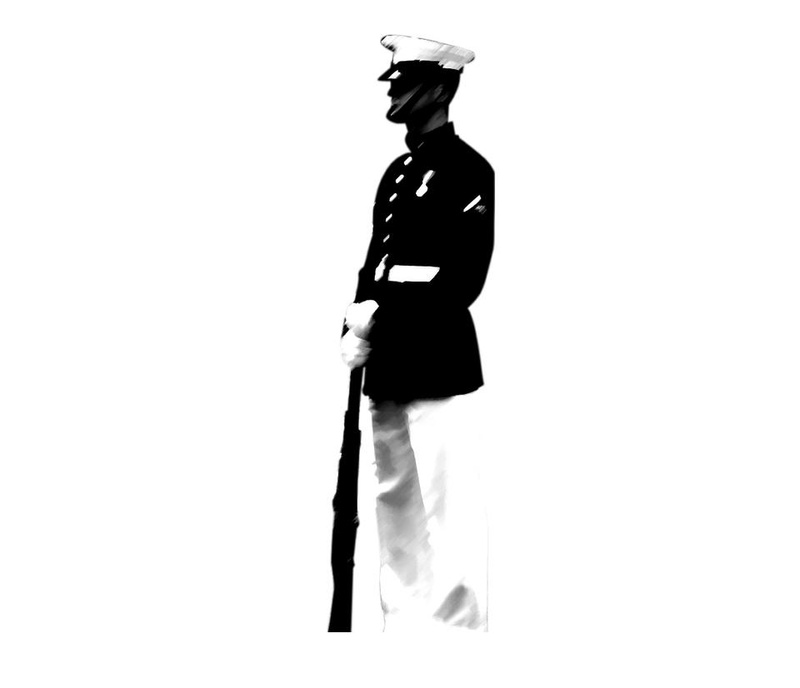In wartime, Harvard students have rarely watched from the sidelines—until now.
In the first half of the 20th century, Harvard students responded to the threat of war with patriotic enthusiasm, with more than 11,000 Harvard affiliates serving in World War I. In World War II, 27,000 students, faculty, and staff served. Harvard also counts more Medal of Honor recipients among its alumni than any other school besides the service academies.
But today, students at Harvard tend to generally exhibit apathy toward the military. This generation is often described as the 9/11 generation, a term that implies that today’s young people have been marked for life by the events of that day. But if such a mark exists at Harvard, it does not appear to apply to the wars in Afghanistan and Iraq, both of which have their origins in the attacks of 9/11.
Since the start of the wars, 4,474 American troops have died in Iraq, and 1,760 in Afghanistan. But discussion of the two wars is nearly non-existent on America’s ivy clad campuses. Protest and organized opposition to the wars in Iraq and Afghanistan is relatively small, and only about 150 Harvard students have served in Iraq or Afghanistan, according to data collected by the Harvard Gazette in 2010. Just three ROTC-commissioned cadets graduated from the College this past May. Nineteen undergraduates were enrolled in the program last year.
Although the drop in military enlistment among Harvard students is largely due to the smaller scale and absence of a draft in the War on Terror, it is well-documented that well-educated men and women are underrepresented in the modern military. According to Pentagon figures from 2006, 17 percent of active duty member of the military have at least bachelor’s degrees compared to 28 percent of the general population. Nineteen percent of new recruits that year were high school dropouts. The median income of recruits matches the country-wide median salary, but America’s wealthiest are also underrepresented in uniform. In short, fighting wars is no longer an occupation for America’s elite.
Lacking both the support of the two World Wars and the protests against the Vietnam War, the wars in Iraq and Afghanistan remain conflicts that Harvard students and an entire generation of young people have never fully rejected or embraced as their own.
“It will be difficult to make a legitimate claim that those who came of age during the current wars can be called ‘the Afghanistan and Iraq Generation,’” said History and Literature Lecturer Steven Biel.
A DIFFERENT KIND OF WAR
On a bus ride to school several days after the attacks of Sept. 11, 2011, Christopher W. Higgins ’11 says he can distinctly remember the smell of smoke from the toppled World Trade Center towers. The memory, he says, was a wake-up call and made him think hard about what he wanted to do in life.
Higgins was 13 years old and living on Long Island at the time of the Sept. 11 attacks. Last summer, he was commissioned as an Army officer.
Higgins said his decision to join the military was influenced by the beginning of the war in Afghanistan. He hadn’t thought seriously about joining the military before 9/11.
“I remember watching CNN with my parents seeing images of American soldiers getting off planes in Afghanistan,” said Higgins, who will enter active duty in the Army in 2013 after he finishes two years of graduate school. “In that time of crisis, the image of everyone looking at these men and women stuck with me as maybe something I’d like to do.”
But Higgins is part of a small crop of elite college graduates heading into the Army.
Biel said he attributes much of the disconnect between young people and the wars in Iraq and Afghanistan to the volunteer nature of the conflicts in Iraq and Afghanistan.
“[A volunteer army] very much changes the domestic dynamics of not just opposition to the Afghanistan and Iraq wars, but the day-to-day awareness of them,” said Biel, who co-teaches History and Literature 90ak: “The Vietnam War in American Culture.” It’s much easier not to know somebody who is serving or has served in Iraq or Afghanistan than it was not to know somebody that was serving in Vietnam.”
Read more in News
Cambridge on Pause













